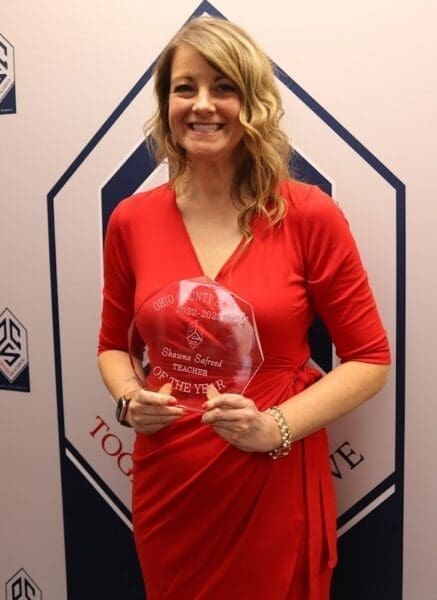Teaching is not performed in a vacuum.
To some, students may be categorized and classified by their test scores, their demographics, and the “per-pupil” cost they add to the respective county’s budget.
But that’s not how teachers view their students. They act as instructors, mentors, and coaches. When called upon, they can also serve as a de facto therapist, a friend, and even a surrogate parental figure.
That’s a lot of responsibility to place upon a person, considering all but one of those job descriptions details a capacity that goes above and beyond teaching the “three Rs.”
All students can learn, but not all share the equal capacity to do so. Just as some athletes are bigger, stronger, or faster than one another, academic-based achievement comes far easier to some students than others. Not only that, but each student can and will learn things differently than his or her peers.
Lesson plans must be tailored to hit multiple delivery vectors to ensure the different types of learning styles can be touched upon during an instructional session. That can’t be easy and is a good reason for teachers to receive a planning period each day. That doesn’t even factor in “willingness” to learn.
Not all students are as interested in their respective educations as their classmates. Some students probably would enjoy learning about history, English, and mathematics, but given it’s Monday morning and they haven’t eaten since the preceding Friday’s school lunch, are unable to concentrate due to serious hunger pangs. Yet these challenges too, teachers must factor in and overcome as best as they are able.
It’s a rewarding profession, but one certainly full of its difficulties, its stressors, and its days full of struggle.
Shawna Safreed, a Teacher of the Year recipient at Bridge Street Middle School in Ohio County and finalist for the same award at the state level, weighed in on some of those very topics in Part II of LedeNews’ Ask a Teacher.
What’s the Best and Worst Part of the Job, from an Emotional Standpoint?
Teaching is very emotional because the students in my classroom because my family–truly. Throughout the year, I am not just their teacher. I am their mentor, counselor, and an adult in their life that models character. Because of this, it can be very emotional to be held to such high standards. It is also very difficult to hear their stories about their lives. I have had to call CPS more times than I can count. I have lost a lot of sleep over the years because of their stories.

Have You Ever Encountered a Student That Was Just Beyond the Ability to Reach? To Help? How Do You Think They Got That Way and What Possibly Could Have Been Done to Help Them Along the Way?
Yes, I have definitely had a handful of students along the way that I found were very difficult to connect with for a variety of reasons. I do try harder with those students, but these are the students I have lost sleep on. Teachers want to help everyone, but some students are harder to reach based on their home life situations. Life has been so tough on them, and they have such distrust for adults.
When You Sit Down at Night, at the End of the Day, or a Nine-Week Term, Is There Something That You Wish You Could Be Doing in Your Classroom, But Currently Arent?
Each year, I reflect constantly. I always want to be my best self for the students. I teach reading, and the truth is, a lot of kids have a negative feeling about reading. Each day, each term, each 9-week period, I often wonder and wish I could change their viewpoints. I do try vigorously in the classroom. My goal is to teach them reading can be enjoyable. We even read novels that are not attached to any grades for that reason.
What Got You Interested in Teaching and Has/Have That/Those Reason(s) Changed Any Since You Started? What Keeps You Going?
I am the only one that keeps me interested in teaching. I attend literally every single professional development that I can, read tons of teaching books, attend seminars, etc. It is just ingrained in me to improve each year. As a teacher, YOU have to strive for it. Nobody is going to keep you motivated but yourself.
Is There Anything Teacher Preparation Programs Need to be Doing to Better Prepare Future Teachers?
I think it is important that college prep programs are consistently reminding their teacher candidates that they are walking into classrooms full of children. These children need love, and that is the job of the teacher. When I was in college the focus was very much just teaching curriculum. It is a different world actually teaching. You have to be fully invested in not just the curriculum but raising children because that is what we do.
Are There Any Strategies You Think Would Improve Students’ Success in Your District?
I think more character education would help to improve success overall in the district and also our society. We, sometimes, forget that we have to teach these young children how to be a person.
Is There Anything You Wished Parents and the General Public Knew About the Day-to-Day of Being a Teacher?
Teachers are the hidden gems in our communities and societies that genuinely love the kids and do things behind the scenes that are never talked about. Teachers go above and beyond to make sure our future generations of kids are well-suited for the world.
What Could Parents Do to Make Your Life, and the Lives of Your Students, More Successful?
I think if parents taught more character education and talked to their children more about what it means to be more kind and considerate of others, it would change a lot about education. Often, teachers are teaching the curriculum along with teaching these students how to be a good person in the world.


